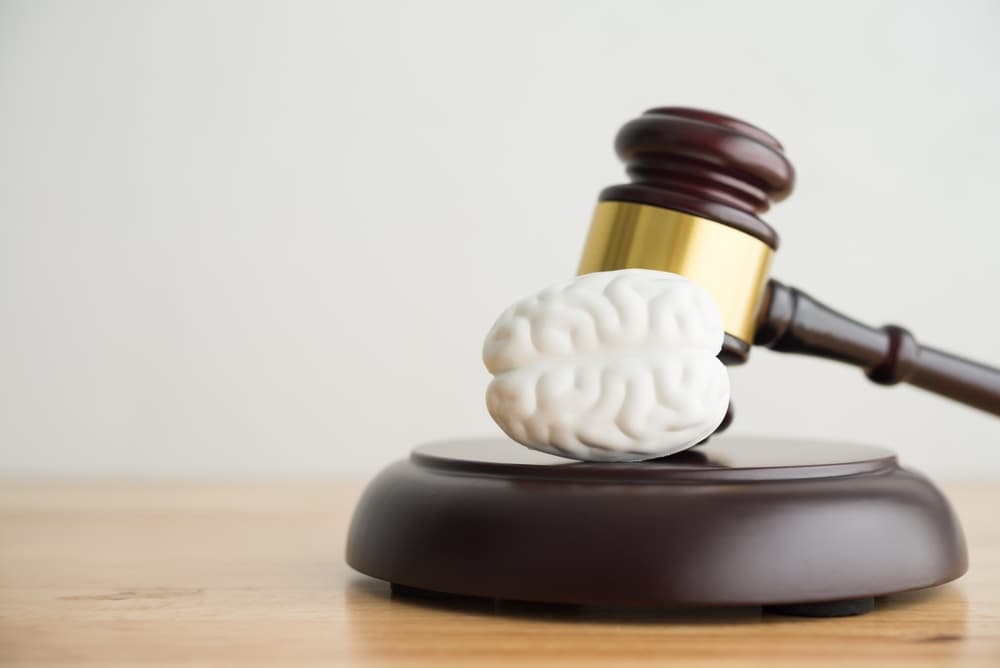Traumatic brain injuries – or TBIs – frequently occur when motor vehicle operators, premises owners, and others are negligent in some way. When an individual strikes their head with a significant amount of force, they may suffer a concussion, coma, or other debilitating head injury.
If you or a person you love suffered a TBI in a recent accident, an experienced traumatic brain injury attorney can meet with you to determine your available legal options and develop a plan of action for your case. Your lawyer can also represent you aggressively during every stage of the proceedings and work to maximize the total compensation award you receive for your injuries.
Types of Motor Vehicle Accidents and Premises Accidents that Cause TBIs

Motor vehicle accidents and premises accidents are common occurrences that can lead to severe TBIs due to others’ negligence.
- Car Accidents – Collisions involving cars are a leading cause of TBIs. Whether it’s a rear-end collision, a T-bone accident, or a rollover, the force exerted on the victim’s head during impact can cause the brain to hit the skull, resulting in injury. Factors like speeding, reckless driving, and impaired driving all increase the risk of severe TBIs.
- Motorcycle Accidents – Motorcyclists are particularly vulnerable to TBIs in accidents due to the lack of protective barriers around them. Even with helmets, the force of a crash can lead to significant head injuries, including concussions and contusions.
- Truck Accidents – Crashes involving large trucks can cause devastating TBIs due to the sheer size and weight disparity between trucks and other vehicles. TBIs can occur not only to occupants of smaller vehicles but also to pedestrians and cyclists involved in the accident.
- Pedestrian Accidents – Pedestrians are at risk of TBIs when a vehicle strikes them – especially while speeding. Even low-speed collisions can result in severe head trauma, leading to long-term cognitive impairment or disability.
- Bicycle Accidents – Cyclists are also vulnerable to TBIs when involved in motor vehicle accidents. The strong force of a collision can cause TBIs ranging from concussions to severe brain damage.
- Slip and Fall Accidents on Others’ Premises – Premises accidents, such as slips and falls, can also lead to TBIs. Whether due to wet floors, uneven surfaces, or inadequate lighting, a fall can cause the victim’s head to strike the ground forcefully, resulting in a TBI.
- Construction Site Accidents – Workers on construction sites are also at risk of TBIs from falls, falling objects, or machinery accidents. Failing to provide proper safety equipment and inadequate training by employers and supervisors can increase the likelihood of such accidents.
- Sports-Related Accidents – High-impact sports like football, soccer, and boxing carry a risk of TBIs, particularly concussions. Improper supervision and inadequate medical attention can exacerbate the severity of these injuries.
Medical Treatment Required for a TBI Suffered in an Accident

Following an accident-related TBI stemming from negligence, several types of medical treatments may be necessary to address the injury. In these circumstances, accident victims can pursue compensation for their pain and suffering, emotional anguish, and other damages resulting from their treatment:
- Emergency Care – Immediately after the accident, emergency medical treatment is crucial. This may include stabilizing the victim, controlling bleeding, and ensuring proper oxygen supply to the brain.
- Diagnostic Testing – Various diagnostic tests, such as CT scans and MRI scans, may be performed to assess the extent of the brain injury and identify any associated complications, such as bleeding or swelling.
- Medication – Medications may be prescribed to manage symptoms and prevent complications. This may include pain relievers, anti-seizure medications, and drugs to reduce swelling or prevent blood clots.
- Surgery – In cases of severe TBIs, surgery may be necessary to repair skull fractures, remove blood clots or hematomas, or relieve pressure on the brain due to swelling.
- Rehabilitation Therapy – Rehabilitation therapy plays a crucial role in TBI recovery. This may include physical therapy to improve motor skills and coordination, occupational therapy to relearn daily tasks, and speech therapy to address communication difficulties.
- Cognitive Rehabilitation – Cognitive rehabilitation focuses on improving cognitive functions, such as memory, attention, and problem-solving abilities, through specialized therapy techniques and exercises.
- Psychological Support – TBI patients may experience emotional and psychological challenges, including depression, anxiety, and mood swings. Counselling and psychological support can help TBI victims and their families cope with these difficulties.
- Assistive Devices and Adaptive Techniques – Depending on the severity of the TBI, patients may need assistive devices such as wheelchairs, walkers, or communication aids to enhance independence and quality of life.
- Long-Term Monitoring and Follow-Up Care – TBI victims may also require long-term monitoring and follow-up care to assess progress, manage ongoing symptoms, and address any new challenges that arise during the recovery process.
An experienced TBI lawyer can pursue the compensation you deserve for the pain, suffering, and inconvenience you experienced due to your injury.
How to Successfully Prove a TBI Case

Successfully proving the legal elements of a TBI case involves gathering evidence and presenting it in a way that demonstrates the responsible party’s negligence – and the full extent of the injury. Here are the key steps involved:
- Establishing Duty of Care – The first step in proving a TBI case is to establish that the at-fault party (or defendant) owed a legal duty of care to the injured party (or plaintiff). This means showing that the defendant had a legal obligation to act with reasonable care to prevent harm to others. For example, in a car accident case, drivers have a duty to drive safely and follow all traffic laws.
- Demonstrating Breach of Duty – After establishing the legal duty of care, the next step is to show that the defendant breached that duty. This involves providing evidence to demonstrate that the defendant’s actions or omissions fell below the standard of care expected under the circumstances. This may include reckless driving, failing to maintain safe premises, or failing to provide adequate safety equipment on a construction site.
- Proving Causation – Causation is a crucial element of any personal injury case, including TBI cases. It involves demonstrating that the defendant’s breach of duty was the direct cause of the plaintiff’s TBI. This may require medical evidence linking the defendant’s actions to the plaintiff’s injury, such as testimony from medical experts or diagnostic imaging showing brain trauma.
- Documenting Damages – In addition to proving liability, it is essential to document the damages that the plaintiff suffered as a result of the TBI. This may include medical records detailing the extent of the injury, lost income, and pain and suffering that the plaintiff endured.
- Presenting Expert Testimony – Expert testimony can be instrumental in proving the legal elements of a TBI case. Medical experts may provide insight into the nature and severity of the injury, as well as the long-term effects it may have on the plaintiff’s life. Accident reconstruction specialists may also be called upon to recreate the events leading up to the injury and demonstrate how the defendant’s actions caused or contributed to the TBI.
- Gathering Witness Statements and Evidence – Witness statements and physical evidence, such as photographs of the accident scene or surveillance footage, can help corroborate the plaintiff’s account of events and strengthen the case.
By carefully following these steps and gathering the necessary evidence, plaintiffs can increase their chances of successfully proving the elements of their TBI case and obtaining fair compensation for their injuries.
Settling or Litigating a TBI Case
Deciding whether to settle or litigate a TBI case is a significant decision that requires careful consideration of various factors. Here’s what to consider:
- Strength of the Case – With the help of your lawyer, assess the strength of the evidence supporting your TBI claim. Consider the available medical records, witness statements, expert testimony, and any other evidence that may support your case. If the evidence strongly supports your claim and demonstrates the defendant’s negligence, you may have a strong case for litigation.
- Potential Damages – Evaluate the potential damages you may be entitled to recover in your TBI case. This includes lost income, pain and suffering, and any other losses resulting from your injury. If the potential damages are substantial, it may be worth pursuing litigation to ensure you receive fair compensation.
- Risks of Litigation – Consider the risks associated with litigation, including the time, cost, and uncertainty involved in going to trial. Litigation can be a lengthy and expensive process, and there is no guarantee of success. Additionally, litigation may result in a public trial, which can be emotionally challenging for some plaintiffs.
- Possibility of Settlement – Assess the likelihood of reaching a favourable settlement outside of court. In many cases, defendants and their insurance companies may be willing to negotiate a settlement to avoid the time and expense of litigation. A settlement can provide a faster resolution and guaranteed compensation, but it may be less than what you can potentially recover through litigation.
- Your Personal Preferences – Consider your personal preferences and priorities when deciding whether to settle or litigate your TBI case. Some plaintiffs may prefer the certainty and privacy of a settlement, while others may be willing to pursue litigation to hold the negligent party accountable and seek justice.
- Legal Counsel – Consult with an experienced personal injury lawyer who can provide guidance based on their knowledge of the law and experience handling TBI cases. A lawyer can help you understand your legal options, assess the strengths and weaknesses of your case, and advocate on your behalf throughout the settlement or litigation process.
The decision to settle or litigate your TBI case will depend upon the specific circumstances of your case, your goals and priorities, and the advice of your TBI lawyer. Take the time to carefully weigh your options and make an informed decision that best serves your interests.
Determining the Value of a TBI Case
Several factors can affect the value of a TBI case. The severity of the injury, the extent of medical treatment required, and long-term effects on the victim’s life are significant factors. Additionally, the responsible party’s level of negligence, availability of insurance coverage, and court where the case is filed can affect the value. Pre-existing medical conditions and the credibility of witnesses also play a role.
The types of compensation that an accident victim may recover in a TBI case include all of the following:
- Lost Income – If the TBI prevents the victim from working or reduces their earning capacity, they may be entitled to compensation for lost wages and future earning potential. This can include wages lost during the recovery period, as well as compensation for reduced earning capacity, if the injury affects the victim’s ability to work in the future.
- Pain and Suffering – Victims of TBIs often experience physical pain, emotional distress, and a diminished quality of life as a result of their injuries. Compensation for pain and suffering is intended to provide monetary relief for the physical and emotional toll of the injury, including pain, discomfort, anxiety, depression, and loss of life enjoyment.
- Loss of Consortium – In cases where a TBI affects the victim’s relationships with their spouse or family members, the injured party may be entitled to compensation for loss of consortium. This can include damages for the loss of companionship, affection, and support that the victim’s loved ones have suffered as a result of the injury.
- Punitive Damages – In cases where the defendant’s conduct was particularly egregious or reckless, the court may award punitive damages to punish the defendant and deter similar wrongful conduct in the future. The main purpose of punitive damages is to hold the defendant accountable for their wrongdoing.
By seeking the guidance of experienced legal counsel, TBI victims can ensure that they receive fair compensation for all of their accident-related losses.
Speak with an Experienced TBI Lawyer Right Away
If you suffered a recent TBI due to someone else’s negligence, an experienced Edmonton personal injury lawyer can assist you with every aspect of your case. Your lawyer will promptly investigate your accident circumstances, file a claim with the appropriate insurance company on your behalf, or litigate your case to a resolution in court.
Seek a free case evaluation as soon as possible.
